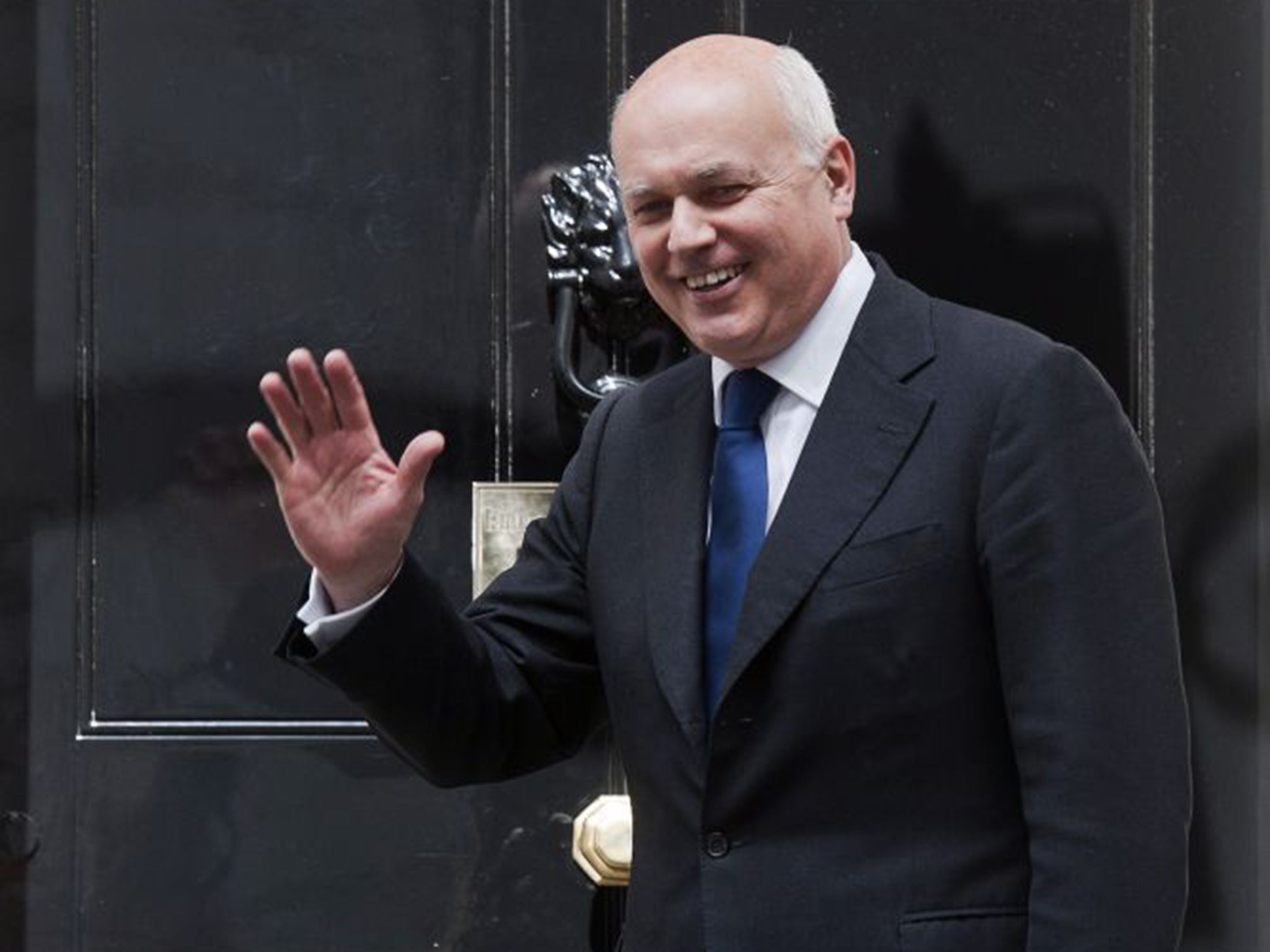11 ways Iain Duncan Smith made life harder for the most vulnerable people in Britain
Iain Duncan Smith spent six years at the helm of the Department of Work and Pensions, before announcing his resignation last night

Iain Duncan Smith announced his shock resignation as Secretary of State for Work and Pensions last night. He has cited concerns cuts had gone “too far” and that slashing funds for people on disability benefits in the same week as announcing tax cuts for high earners was “not defensible”.
The announcement came as a surprise to many within his own party. Prime Minister David Cameron has said he is “puzzled” by the news. Stephen Crabb has been revealed as Mr Duncan Smith’s successor.
Mr Duncan Smith was appointed as DWP Minister in 2010 to oversee welfare cuts under the Conservative-Lib Dem coalition. During his time at the DWP helm, he was behind a number of deeply controversial reforms and practices, causing him to be the focus of much anti-austerity anger. However, Mr Duncan Smith defended his actions, saying that cuts were not harming vulnerable people but actually helping them to find work or recover from their illnesses.
Here are of some the policies he oversaw to ‘help’ the sick and the poor during his time in office.
1. Slashed the Personal Independence Payment (PIP)
The Personal Independence Payment is funding to help disabled people live as independently as possible.
Just last week the Government revealed it would cut this; causing half a million disabled people to lose out on what charities called essential funding to live with basic standards of dignity.
2. Risked forcing ill people to go to work because of faulty sickness assessments
Experts warned that the Government’s Work Capability Assessment was based on flawed criteria which means it wasn't accurately assessing sickness and was sending sick people back to work for roles they couldn’t do.
3. Blocked information on benefit claimants' deaths
The DWP refused to reveal how many people died shortly after having their benefits cut. After a lengthy legal battle and intervention from the Information Commissioner, the department finally revealed the numbers in August 2015.
4. Increased sanctions for people on sickness benefit
Sanctions, such as abruptly stopping benefits, increased hugely. Figures suggested sanctions increased fourfold, prompting homelessness charity Crisis to warn they were “cruel and can leave people utterly destitute - without money even for food and at severe risk of homelessness.”
5. Capped the Access To Work scheme
A scheme designed to help severely disabled people into work. Users are primarily people who are deaf or blind, but otherwise capable of working.
A new cap was introduced to give a maximum amount which could be spent on any individual, regardless of how much support they need. Critics argued that this was arbitrary and didn’t reflect how the most severely disabled would need more help.
6. Scrapped the Independent Living Fund
A fund established in 1988 to help people with disabilities to live independent lives, for instance at home with family instead of living inside institutions.
It was scrapped on 1 July 2015, taking an average of £300 per week from 18,000 severely disabled people.
7. Spent £8.45 million on a mascot
Alongside the austerity cuts, Iain Duncan Smith provoked ire when it was revealed that a cuddly mascot called ‘Workie’ was commissioned for the DWP to promote pension changes - costing £8.45 million.
8. The 'Bedroom Tax'
Perhaps one of the most controversial policies in recent years, the spare room subsidy – commonly known as the Bedroom Tax – has been roundly criticised as causing misery for already vulnerable and poor people. It meant people receiving housing benefit were given less money to cover their rent if they had an unoccupied bedroom in their home.
Research revealed that two thirds of people affected were disabled. Many reported that they had to move out of their specially adapted homes because they could no longer afford to live there.
9. Invented fake benefit claimants to praise the DWP
In August, it was revealed that the DWP invented fake benefit claimants for their leaflets which said they were “really pleased” their benefits had been cut because it had inspired them to find work
10. Argued that zero-hours contracts aren’t that bad and just need a new name
Iain Duncan Smith said in an interview: “The zero-hour contract is badly named. I don’t know whoever came up with that idea. It should be named the flexible hours contract.”
11. Tried to suppress memos on Universal Credit
The DWP has refused requests to publish reports about concerns over the Universal Credit scheme. Just this week, a judge ordered them to reveal the documents, siding with campaigners who said it was important public information.
Subscribe to Independent Premium to bookmark this article
Want to bookmark your favourite articles and stories to read or reference later? Start your Independent Premium subscription today.

Join our commenting forum
Join thought-provoking conversations, follow other Independent readers and see their replies